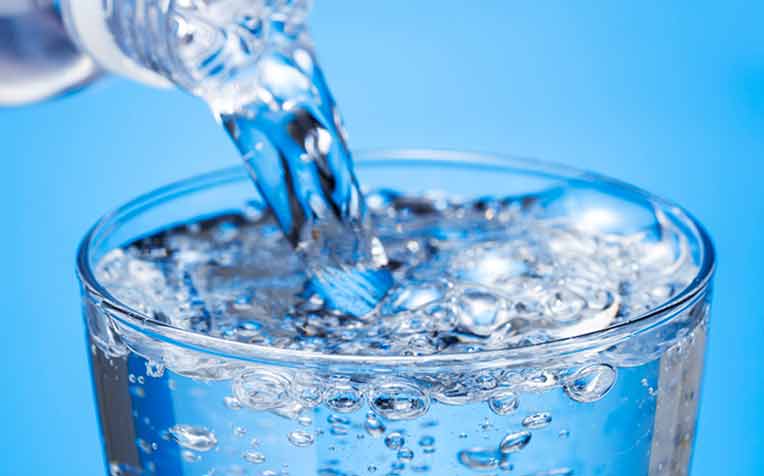
Urinary stones may be preventable by drinking a type of sparkling mineral water that contains a certain mix of calcium, magnesium and bicarbonate, according to a study.
Trying to pass out a urinary stone can be very painful, and some people undergo the agony not once but multiple times.
Patients with a recurring condition are advised to drink more water and watch what they eat. Urine that has become too concentrated allows waste chemicals to crystallise and urinary stones to form.
As many people find it hard to make dietary changes, Dr Palaniappan Sundaram, Associate Consultant, Urology Service, Sengkang General Hospital,a member of the SingHealth group, has been researching if simply drinking water with a certain mix of minerals will make a difference.
“Everybody metabolises the water that they take in different ways. [People prone to developing urinary stones] metabolise the water they drink differently from other people, and that is why they make stones,” said Dr Palaniappan.
Urinary stones: Study on effects of drinking sparkling mineral water
The study looked at a type of sparkling mineral water with a specific mineral content that includes calcium, magnesium and bicarbonate. Calcium and magnesium are stone inhibitors while bicarbonate increases the pH of, or alkalinises, the urine. Alkalinising can help those patients with calcium-associated stones (either calcium oxalate or calcium phosphate). They make up about 80 per cent of patients, said Dr Palaniappan.
Ten participants who had not suffered from urinary stones before were recruited for the Mineral Water In The Prevention Of Urinary Stones study. They weren’t restricted from their normal diets, but for a week, they had to drink at least 1.25 litres of the mineral water every day, preferably with their meals.
“The idea is for the calcium in the mineral water to bind with the oxalate and not be absorbed,” said Dr Palaniappan. Oxalate – mainly from food like spinach, nuts and chocolate – has to bind with calcium to be excreted. Otherwise, it gets absorbed and forms kidney stones.
Urinary stones: Results after drinking sparkling mineral water for one week
Three 24-hour urine samples were collected – before, after, and a week after the study period – and analysed for changes. The results were generally positive: Participants on average produced a significant increase in urine volume, from 1,500ml to 1,800ml (meaning the participants had drunk substantial volumes of water); a decrease in urinary oxalate secretion to 0.23 millimoles (mmol) a day from 0.32 mmol/day; and a significant increase in urinary magnesium to 4.8 mmol/day from 3.3 mmol/day.
Urinary calcium didn’t increase, despite the high calcium content of the mineral water.
Urinary citrate, however, showed a slight decrease to 2.2 mmol/day from 2.5 mmol/day. A higher level inhibits stone formation.
The study, which was co-authored by Dr Chong Tsung Wen, Senior Consultant, Department of Urology, was submitted to the 2016 SingHealth Duke-NUS Scientific Congress. A second study was done between April and December 2016, which recruited 10 people who had kidney stones. Preliminary results were similar to the first, although urinary citrate, which showed a decrease among the first study group, rose among the second group, said Dr Palaniappan.
A larger randomised control study is being planned, with 30 participants each in the intervention and control arms, and will likely last longer, probably around three months.
Read the previous page for answers to frequently asked questions about urinary stones.
Ref: N18
Contributed by














 Get it on Google Play
Get it on Google Play